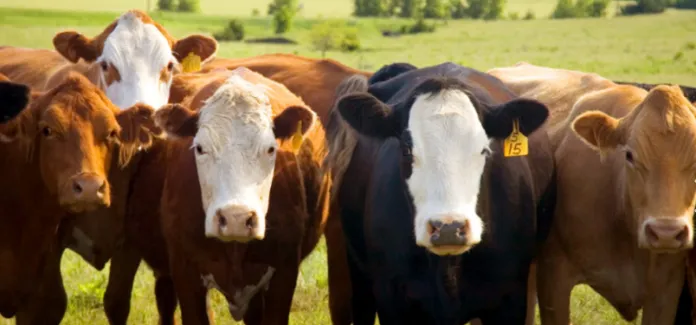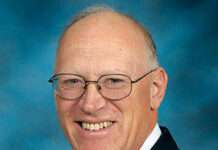Veterinarians routinely perform breeding soundness exams to assure bulls are ready for the season ahead
MANHATTAN, Kan. — In high level sports, coaches not only train their athletes to perform on the field, they also make sure players are in top condition by offering them strength training and managing their diet to make sure they are ready for peak performance at the time of the competition.
In much the same way, veterinarians and beef producers work together to make sure the bulls are in good body condition, possessing structural soundness and are able to produce high quality semen ahead of breeding turnout with the females.
To evaluate the bull’s readiness for the summer season, veterinarians often perform breeding soundness exams. This topic was discussed on a recent Kansas State University Beef Cattle Institute Cattle Chat podcast.
“The purpose of the breeding soundness exam is to make sure that the bull is ready to get a lot of cows pregnant in a short period of time,” said Bob Larson, veterinarian at Kansas State University.
The exam involves a physical exam as well as a semen quality check, he said. Specifically, veterinarians are evaluating the bull’s body condition, structure and reproductive organs.
“Along with visually appraising him by doing an examination of his external reproductive genitalia, semen quality is also assessed under a microscope,” said Brad White, BCI director and veterinarian.
White said the semen is given a pass or fail rating.
“Remember the semen collection is just a snapshot in time and new cells are being made hourly so if 70% of the sperm cells are healthy then the bull is considered to have adequate semen quality,” Larson said.
White added that bulls may fail the sperm test for many reasons, so a poor test doesn’t necessarily mean the bull needs to leave the herd.
“Sometimes young bulls fail because they need a little more time to fully mature, while other bulls may not pass because they are not in the right body condition,” Larson said. “If they fail, it is important to look further to determine why they failed.”
In such cases, Larson said oftentimes those bulls will pass later tests once those adjustments to their care are made.
To hear more of this discussion, listen in to the BCI Cattle Chat podcast online.
FOR PRINT PUBLICATIONS: Links used in this story
Cattle Chat podcast, https://ksubci.org/2021/03/12/hay-feeding-breeding-soundness-exam-bull-economics-extending-grazing-season/
K State Research and Extension is a short name for the Kansas State University Agricultural Experiment Station and Cooperative Extension Service, a program designed to generate and distribute useful knowledge for the well being of Kansans. Supported by county, state, federal and private funds, the program has county extension offices, experiment fields, area extension offices and regional research centers statewide. Its headquarters is on the K State campus in Manhattan. For more information, visit www.ksre.ksu.edu. K-State Research and Extension is an equal opportunity provider and employer.
Story by:
Lisa Moser
785-532-2010
[email protected]
More information:
Bob Larson
785-532-4257
[email protected]
Brad White
785-532-4243
[email protected]





